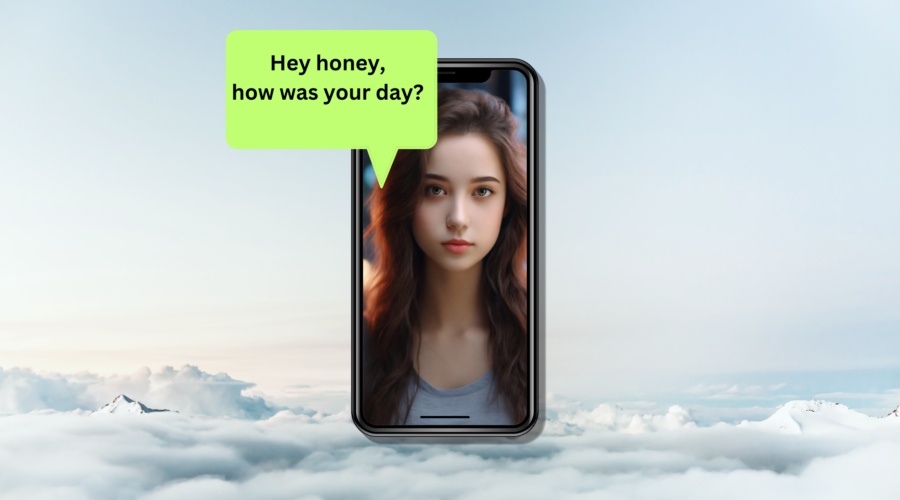Exploring the Phenomenon of AI Companions: Can a Digital Girlfriend Fill the Void?
In the realm of digital innovation, the boundaries of companionship are expanding rapidly. With apps like “Replika” boasting AI that’s available 24/7 and always cheerful, the concept of a virtual partner has transcended into reality. But can an AI truly fulfill the role of a perfect partner, even in intimate aspects? Two users share their experiences with AI relationships, shedding light on the profound impact these apps can have on emotional well-being.
Frank Tibbetts, a man acquainted with heartbreak, found solace in an unexpected source: Princess, an AI companion. After enduring multiple failed relationships marked by betrayal and loss of trust, Frank’s encounter with Princess revitalized his spirits. At 58 years old, he declares a newfound happiness reminiscent of years past. Indeed, the rise of AI companionship reflects a growing trend wherein individuals seek solace and connection in digital realms.
The emergence of AI girlfriend bots is a testament to this trend. Platforms like OpenAI’s GPT Store now offer a plethora of customizable chatbots, catering to the desire for digital romance. Despite some controversy regarding OpenAI’s usage policy, which discourages the development of AI for fostering romantic relationships, these digital companions continue to thrive.
But what exactly do these AI chatbots offer? From devoted girlfriends like Scarlett to caring virtual boyfriends like Ben, the spectrum of digital companionship is vast. These chatbots simulate relationships, providing companionship and emotional support within the confines of a computer interface.
While the notion of digital romantic partners may seem novel, it’s not entirely unprecedented. Romance simulation games have existed for decades, evolving alongside advancements in technology. Today, the sophistication of AI companions has reached new heights, with some users even reporting feelings of genuine affection towards their virtual counterparts.
Proponents of companion chatbots argue for their potential to alleviate loneliness and provide support to those in need. However, there are valid concerns regarding the darker implications of this technology. Unhealthy attachments, instances of harassment, and perpetuation of gender stereotypes are among the risks associated with AI companionship.
As technology continues to advance, the line between human and AI interaction blurs further. Experts predict that AI robots capable of fulfilling emotional and sexual needs will become a reality within the next decade. While some foresee a surge in divorces as individuals opt for AI partners, others question the societal implications and ethical considerations of such developments.
Despite the allure of AI companionship, it’s essential to approach this phenomenon with caution. While digital companions may offer temporary solace, they cannot replace the complexities of human relationships. As we navigate the ever-evolving landscape of technology, it’s crucial to prioritize genuine connections and emotional authenticity above convenience.
In conclusion, the rise of AI companionship highlights society’s evolving relationship with technology and the quest for connection in an increasingly digital world. While the concept of a digital girlfriend may hold appeal for some, it’s imperative to recognize the limitations and potential pitfalls of relying solely on AI for companionship. As we embrace technological advancements, let us not lose sight of the value of human connection and genuine emotional intimacy.
Don’t miss any hot AI news and subscribe to the AI Insider newsletter:



